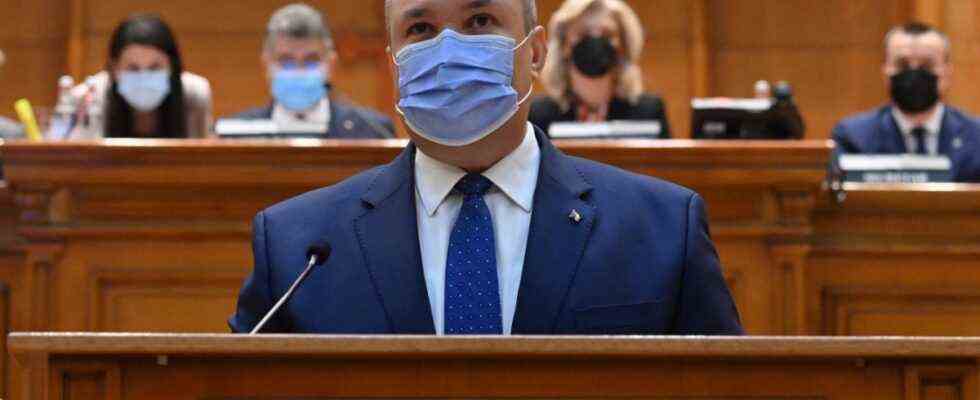It took several attempts and several prime minister candidates for a new government to come together in Romania. The highlight: there are now, if you will, two governments.
Because after the previous Conservative Prime Minister Florin Cîtu had been overthrown by a vote of no confidence at the beginning of October, those two parties had come together that had vowed the loudest in the last election campaign a year ago that they would never, but never want to govern together: Cîtus Conservatives (PNL ) and the Social Democrats (PSD). The nationalist and Russia-friendly Social Democrats had insisted that they could only engage in politics with the conservatives if Cîtu gave way. He offered sustained resistance, but was then forced to withdraw under pressure from President Klaus Johannis, who directed the actors in the recent state crisis.
So now there is a grand coalition and, since Friday, a coalition agreement. In addition, a new Prime Minister was sworn in the day before: General and former Defense Minister Nicolae Ciucă of the PNL. So it could start with the crisis management in the country badly shaken by Corona, in which the eternal dispute over the fight against corruption and the use of EU funds is a constant topic – also in the EU’s progress reports. The start of the new government, however, was preceded by weeks of personal poker, which could confirm what the opposition is already saying with scorn: This government, like the last one, will hardly survive the coming year.
The current deal looks like this: The new Prime Minister Ciucă will only lead the country for a year and a half; on May 25, 2023 will be exchanged. For reasons of power politics, PSD and PNL could only find each other by agreeing a rotation principle. On May 26, 2023, the left, presumably party leader Marcel Ciolacu, will take over the post of head of government.
The opposition sees the judicial reform at risk
To make sure that neither side is taken advantage of, more rotations were worked out. After a year and a half, the posts of vice prime minister, the ministries for finance, justice, transport and EU funds as well as the general secretary of the government are also due to change. Corruption expert Laura Stefan from the Think Tank Expert Forum told the SZ: “I find the whole idea of a government rotation bizarre. I don’t know how to do it and I wonder if they even know how to do it.” In any case, the new coalition is very problematic – especially when it comes to strengthening the rule of law in Romania.
A year and a half PNL, a year and a half PSD, then new elections – this is the deal. In addition, the grand coalitionists have already announced that they are planning for a longer period of time, preferably for seven or eight years. In his inaugural address in parliament, Ciucă promised “predictability, stability” and better success in combating the corona epidemic. How good the mood is in the new partnership could also be seen on this topic. After the swearing-in, the PSD boss publicly announced against the new partners: The Social Democrats would not, like the conservatives, lie and claim that the pandemic had already been defeated.
Either way, they want to improve the ailing infrastructure with massive investments and raise pensions and wages. In addition, the EU reconstruction and resilience plan is to be renegotiated with Brussels. The reforms in the judicial sector called for by the EU are not provided for in the coalition agreement; The Commission and the ECJ had repeatedly called for the abolition of the disciplinary body introduced by the public prosecutor’s office under the last social democratic government, which critics see as a kind of censorship authority for overly independent judges. This has not happened to this day.
The opposition, especially the liberal USR-Plus that left the last coalition, is outraged. Their party leader wrote on Facebook over the weekend that a few days ago President Johannis had placed the government in the hands of people who had shirked real judicial reform for 15 years. Proof of this is that the coalition made lawyer Laura Vicol, famous for her campaigns against the National Anti-Corruption Bureau, head of the Chamber of Deputies Legal Commission. Worse still: Vicol is in favor of maintaining the controversial disciplinary body for judges.

